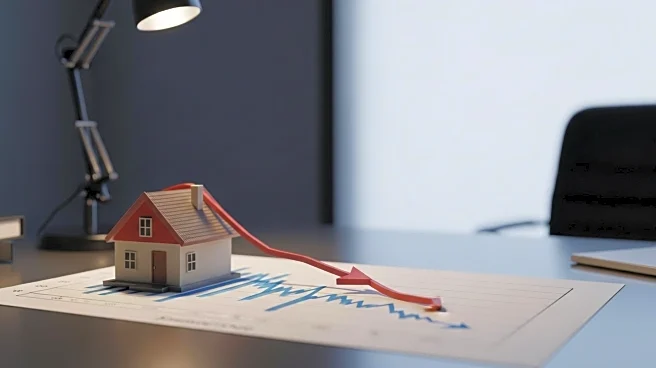What's Happening?
The U.S. housing market is facing significant challenges, with home sales projected to reach their lowest levels since 1995. Economic uncertainties, high mortgage rates, and elevated home prices are contributing to a cautious environment for both buyers and sellers. Active listings have declined, and many homeowners are hesitant to sell due to fears of not receiving adequate value for their properties. The market is experiencing gridlock, with buyers reluctant to purchase homes and sellers pulling listings off the market.
Why It's Important?
The downturn in home sales could have broader implications for the U.S. economy, affecting real estate markets, consumer spending, and economic growth. High housing costs and economic jitters are impacting buyer and seller behavior, potentially leading to reduced market activity and slower economic recovery. The housing market's struggles may influence policy decisions and economic strategies aimed at stabilizing the sector and supporting affordability.
What's Next?
The housing market may continue to face challenges unless mortgage rates decline significantly and economic conditions improve. Policymakers and industry stakeholders may need to consider measures to support housing affordability and stimulate market activity. Monitoring economic indicators and housing trends will be crucial in assessing the market's trajectory and implementing appropriate responses.
Beyond the Headlines
The housing market's struggles highlight broader issues of affordability and economic uncertainty. It underscores the need for long-term strategies to address housing challenges and support equitable growth. The market's gridlock reflects broader economic concerns and the importance of stability in supporting consumer confidence and economic recovery.









